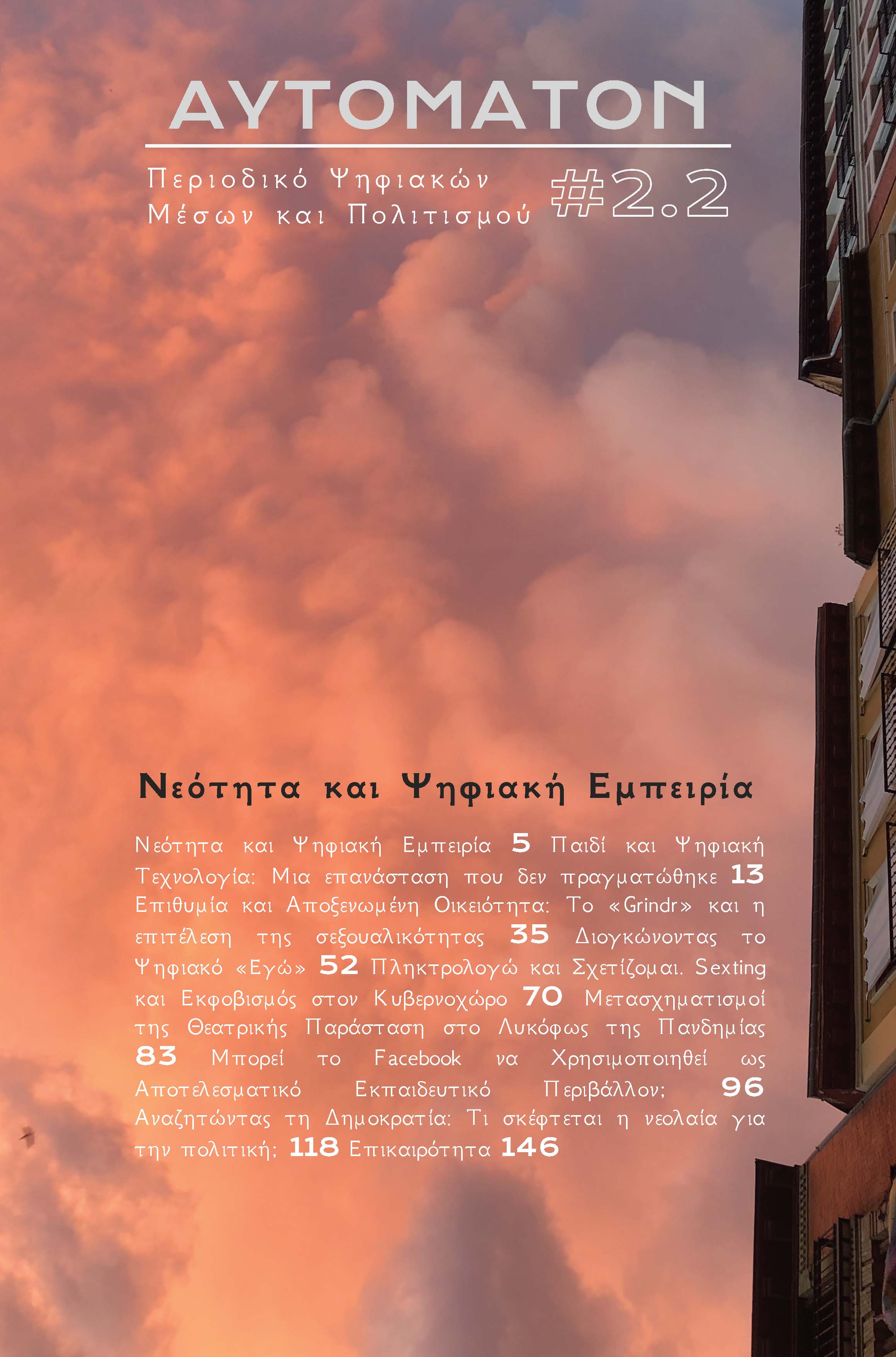Child and Digital Technology An unrealized revolution

Abstract
For the first time in the history of human existence, a decisive shift in the socio-technological environment could occur in the Western civilization in the 1990s- 2000s. The main characteristic of this period is the fact that children have a greater understanding and knowledge of digital technologies and the virtual spaces generated from them than many adults. This fact contributes to the acquisition of important skills and ways of thinking on the part of children in new media that are directly related to the structure of the rapidly developing new culture. This article will attempt to study this phenomenon, which could cause a shift in the balance between the two generations. Based on this hypothesis, the relationship between adults and children will be studied, and especially whether the emphasis on the part of adults is placed on the child as an individual or on his/her education.
Article Details
- How to Cite
-
Santorineos, M. (2023). Child and Digital Technology: An unrealized revolution. Αutomaton: Journal of Digital Media and Culture, 2(2), 13–34. https://doi.org/10.12681/automaton.35470
- Section
- Articles

This work is licensed under a Creative Commons Attribution 4.0 International License.
Authors wishing to publish articles in this journal agree to the following terms:
1. The Authors retain the Copyright and grant the journal the right of first publication while at the same time the copyright of the work is protected under the Creative Commons Attribution License which allows third party licensees to use the work as they wish provided they acknowledge the work's authorship and initial publication in this journal.
2. Authors may enter into separate additional contractual arrangements for the non-exclusive distribution of the published journal version of the work (for example, posting it to an institutional repository or publishing it in a book), with acknowledgment of its initial publication in this journal.
3. Authors are allowed and encouraged to post their work online before and during the submission process (e.g. on their website) as this can lead to productive exchanges as well as earlier and more citations of published work (See The Effect of Open Access).


